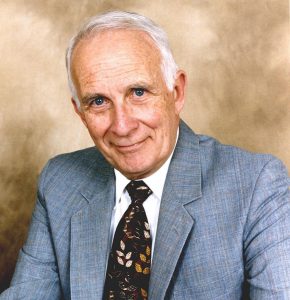Awardee: Commsoft
AWARD YEAR: 1997
Then: Communications Software Consultants, or Commsoft, was the winner of the Most Significant Growth Award in 1997. Back then it had 87 employees and was located in the Corporate Woods Office Park in Albany. Commsoft Founder, President and Chairman Larry Davis said, “Back in 1997 people still had phones in their houses, now you just have internet bandwidth and cell phones. Technology and regulatory changes have had a tremendous impact on our clients.”
Now: Commsoft now has 43 employees and two offices, with one in East Greenbush and the other in Denver. Davis said, “The telecom industry has changed rapidly and constantly since 1997 and CommSoft has had to change to keep up. Changes in technology have forced CommSoft to reinvent itself almost constantly in the last two decades. Thanks to our loyal clients and phenomenal employees, CommSoft has been able to survive and thrive through all the disruption. We’re proud of the fact that we still have many of the same clients and employees that were with CommSoft when we won the award in 1997. That’s how we define success.”
Awardee: Vicarious Visions
AWARD YEAR: 1998
THEN: This video game startup began 1998 in the Rensselaer Polytechnic Institute Incubator Center and ended it in the Rensselaer Technology Park, where it moved to accommodate its growth aspirations. It won the Most Innovative/Unique Application award for its 3-D, real-time Internet space simulation combat game. The startup had five employees. “At the time of the awards, we were a group of students and recent grads who were just learning the ropes of effective game and software development, as well as the basics of business,” VV co-founder Guha Bala.
NOW: In 2016, the studio came under new leadership, bringing with it a commitment to a culture of teamwork, respect, and fun. They have built a welcoming and relaxed workplace that invites creativity, embraces diversity and inclusivity, and encourages individual voices. In 2017, VV released the highly successful remaster, Crash Bandicoot N. Sane Trilogy while partnering with Bungie to help expand the Destiny 2 universe. In 2019 the studio moved from Menands to a new Colonie headquarters, and is set to release the highly anticipated remaster of Tony Hawk’s Pro Skater 1 & 2 on September 4, 2020.
Awardee: CommerceHub
AWARDEE: CommerceHub
AWARD YEAR: 2004
THEN: This e-commerce fulfillment company won the Economic Winner in 2004. That year it moved its headquarters from Clifton Park to the Albany NanoFab campus, where it had 60 employees. It was annually processing $7 million in orders for companies such as Wal-Mart, Kmart and Sears.
NOW: In 2018, CommerceHub’s founder and CEO, Frank Poore, sold the company, which had 325 employees mostly in Albany, to two private equity firms for $1.1 billion. Since 2016, the company has operated out of SUNY Polytechnic Institute’s Zen Building, now processing $20 billion in merchandise annually for 12,000 suppliers, brands and distributors.
Awardee: Etransmedia
AWARD YEAR: 2013
THEN: This a health care information provider was headquartered in the Rensselaer Technology Park in 2013 and had 325 employees and $50 million in annual revenues. That year it was ranked 3,871 on the Inc. 5000 list of America’s fastest-growing companies.
NOW: Etransmedia’s founders, brothers Vikram and Vikash Agrawal, sold the company in 2017 to Formativ Health. By then its headcount has grown to 700. The company’s headquarters was relocated to New York City, but some employees remain in the region. The Agrawal brothers took a year to recharge after Etransmedia’s sale and then started a family investing office – Vik Brothers NY. Their new healthcare technology venture is Levrx, a pharmacy spend management software startup in Troy.
Awardee: United Concierge Medicine
AWARD YEAR: 2017
THEN: UCM received the Lift-Off Award in 2017. The startup connects providers to patients around the clock via phone, text, video and secure messaging. The providers can diagnose, prescribe medications, order lab work and x-rays, and even give referrals to local primary care physicians and physicals. In 2017, the company, based in Clifton Park, employed more than 50 medical providers and 15 additional team members.
NOW: Whereas UCM was handling telemedicine for 10,000 patients in 2017, it is now handling millions. It surpassed 1 million patients in 2019 when it extended to a payer network with Capital District Physicians’ Health Plan (CDPHP). Earlier this year, UCM ramped up its business with CDPHP and added MVP Health Care as a customer. UCM scaled capacity to deal with five times greater consultation volumes during COVID-19, and it built out the team for platform and market expansion.
















